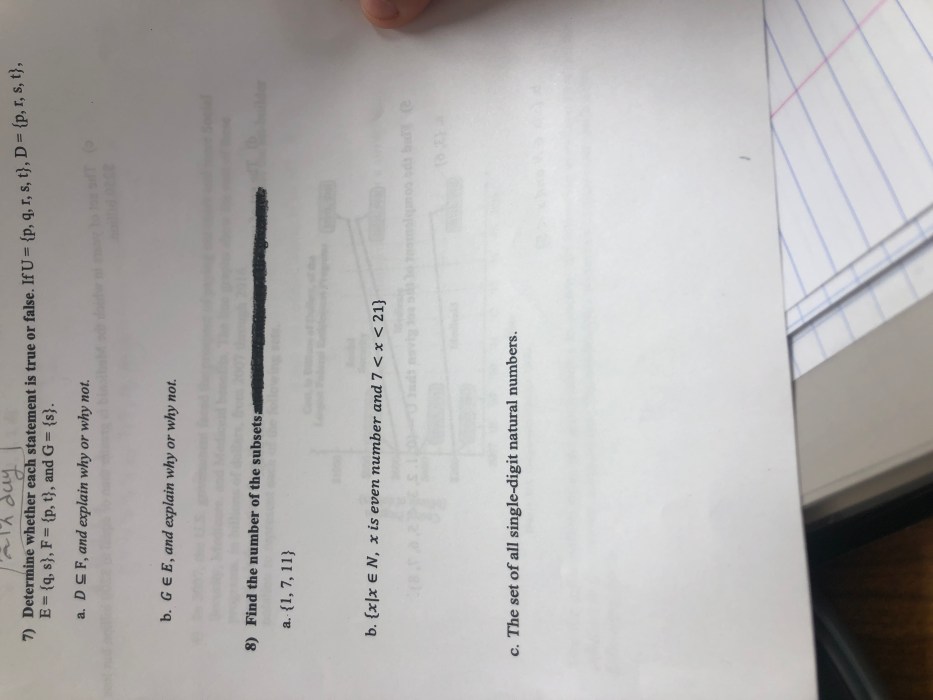Which of the following statements about grammar is not true? This question delves into the complexities of grammar, a system of rules that governs language and ensures effective communication. As we embark on this linguistic exploration, we will uncover the fundamental principles of grammar, unravel its intricate tapestry of rules, and delve into the fascinating world of grammatical evolution and style.
Throughout history, grammar has played a pivotal role in shaping language, influencing its structure and usage. From the ancient Sanskrit grammarians to modern linguists, scholars have dedicated themselves to understanding and codifying the rules that govern our speech and writing.
In this comprehensive guide, we will explore the multifaceted nature of grammar, examining its essential elements, exceptions, and evolution, while also shedding light on its relationship with style.
Grammar Basics
Grammar refers to the system of rules governing the structure and usage of language. It encompasses the principles and patterns that enable us to construct meaningful sentences and convey ideas effectively.
There are various types of grammar, including:
- Descriptive grammar: Describes how a language is actually used.
- Prescriptive grammar: Prescribes how a language should be used, often based on historical conventions or perceived standards.
- Theoretical grammar: Develops formal models to explain the structure and function of language.
- Pedagogical grammar: Focuses on teaching grammar to learners.
Grammar Rules: Which Of The Following Statements About Grammar Is Not True

Grammar rules are essential for effective communication. They provide a framework for organizing words and phrases into meaningful structures, ensuring clarity and comprehension.
Some key grammar rules include:
- Subject-verb agreement: The subject of a sentence must agree in number and person with the verb.
- Noun-pronoun agreement: A pronoun must agree in gender, number, and person with the noun it refers to.
- Verb tense consistency: The verbs in a sentence must agree in tense, indicating the time of the action or event.
- Adjective and adverb placement: Adjectives and adverbs must be placed correctly to modify the appropriate words.
- Punctuation: Punctuation marks (e.g., commas, periods, quotation marks) are used to clarify meaning and structure.
Grammar Exceptions

While grammar rules are generally consistent, there are exceptions that occur in specific contexts.
Some common grammar exceptions include:
- Collective nouns: Collective nouns (e.g., team, group) can take singular or plural verbs depending on the intended meaning.
- Ellipsis: Words or phrases can be omitted when they are understood from context.
- Irregular verbs: Some verbs do not follow the standard rules for verb conjugation.
- Non-standard dialects: Dialects may have different grammatical structures than standard language.
Grammar Evolution

Grammar is not static but evolves over time, influenced by various factors.
Factors that have influenced grammatical evolution include:
- Language contact: Interaction with other languages can lead to the adoption or adaptation of new grammatical structures.
- Technological advancements: New technologies (e.g., social media, texting) have introduced informal and abbreviated language forms.
- Cultural changes: Shifts in societal norms and values can affect language usage and grammar.
- Historical events: Major events (e.g., wars, migrations) can lead to changes in language and grammar.
Grammar and Style

Grammar and style are closely intertwined. Grammar provides the foundation for clear and coherent writing, while style allows for creativity and expression.
Using grammar effectively in writing can:
- Enhance clarity: Correct grammar helps convey ideas precisely and avoid misunderstandings.
- Improve readability: Proper grammar makes writing easier to read and understand.
- Convey tone and mood: Grammar can be used to create different tones and moods in writing.
- Establish credibility: Adhering to grammar rules demonstrates professionalism and credibility.
User Queries
What is the purpose of grammar?
Grammar provides a set of rules and principles that govern the structure and usage of language, ensuring effective communication and clarity.
Are there any exceptions to grammar rules?
Yes, there are certain common exceptions to grammar rules that arise due to historical evolution, colloquial usage, or stylistic choices.
How has grammar evolved over time?
Grammar has undergone significant evolution over time, influenced by factors such as language contact, social changes, and technological advancements.